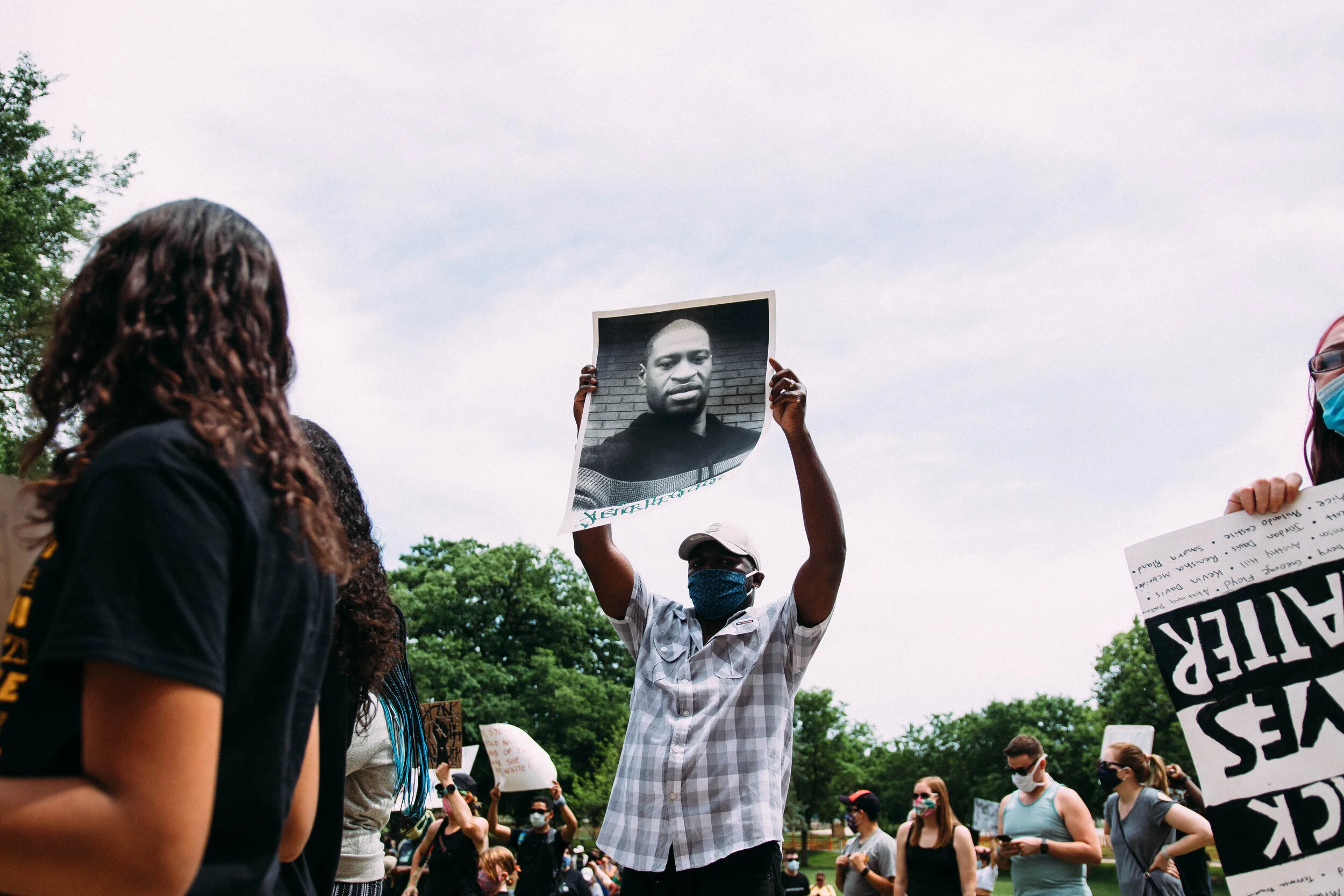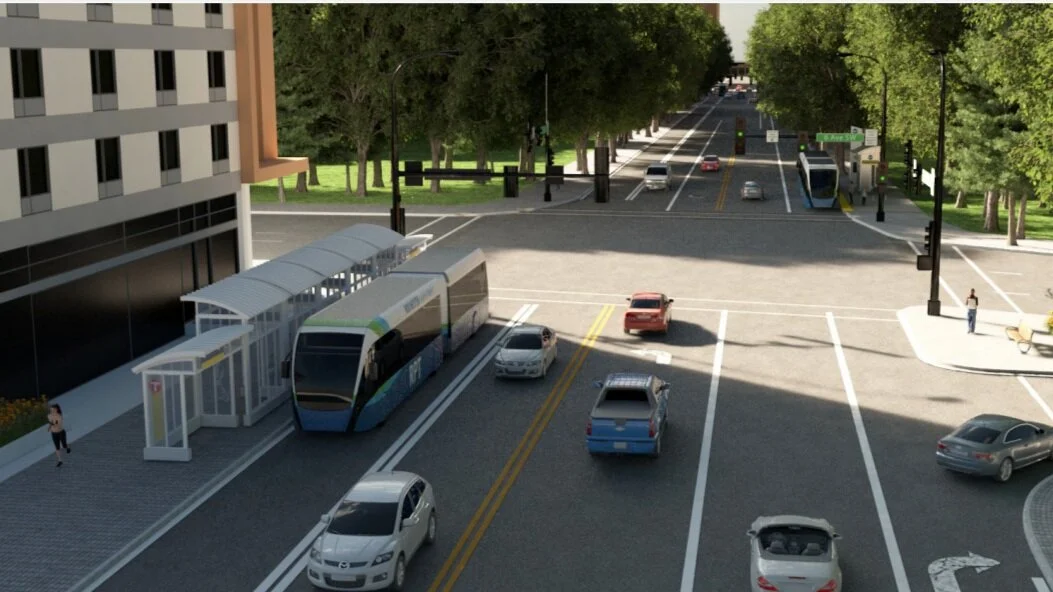2021 will bring e-buses, self-driving shuttles to the streets of Rochester
After a year on the sidelines, a plan to bring self-driving shuttles to Rochester’s downtown got the green light to hit the streets of downtown this summer.
A 12-month pilot program for low-speed autonomous vehicles will debut in August, with support from the city, Mayo Clinic, MnDOT, and Destination Medical Center. First Transit will operate the fare-free service, which will include two shuttles made by French startup EasyMile.
First Transit plans to send the shuttles on a 1.5-mile route along Center Street, Third Avenue SW, Sixth Street SW, and Broadway, with stops just outside Methodist Hospital, People’s Food Co-op, and the Hilton Garden Inn on Broadway.
The Rochester City Council unanimously approved the contract with MnDOT Monday evening, after originally signing a “memorandum of understanding” (The program was originally scheduled to start in mid-2020, but the Covid-19 pandemic pushed the project back a full year.)
Mayor Kim Norton, who sits on the Executive Committee for the Center for Transportation Studies at the University of Minnesota, said the state’s leaders on transportation would be watching Rochester closely to see how the program performs through high traffic and rough weather.
“We’re on some cutting-edge stuff here for the state of Minnesota,” said Norton. “I’m excited and a little nervous at the same time, but I think we’ll learn a lot through the whole process.”
RPT adding electric buses to its fleet
Also this week, the council approved a motion to add at least two new electric buses to the city’s bus fleet.
In a 5-2 vote, the council agreed to purchase two 60-foot electric buses from Canadian manufacturer New Flyer, which has provided electric buses to cities like Chicago, Winnipeg and New York.
Rochester Public Transit plans to use the buses on Route 560X, which runs between downtown and the IBM and fairgrounds park-and-ride locations.
“These buses are well-suited for RPT’s express park-and-ride service,” said Ia Xiong, the city’s physical development manager. “The extra capacity will allow us to carry more passengers and improve efficiency, and we will have the opportunity to re-charge the batteries if needed between the morning and afternoon peak periods.”
Example of the type of e-bus purchased by the city / RPT
After receiving two separate federal grants, the city will be on the hook for $884,000 of the $2.8 million project cost. The council also has the option to purchase two additional buses before December 2022 for another $2.8 million, although federal funding for that purchase is not set in stone.
Even with federal funding, however, Council Members Shaun Palmer and Mark Bransford voted against the purchase of the first two buses — saying the cost was too steep for a city facing a tight financial situation in the coming years.
“We’re in a budget crunch, and this kind of feels like the new iPhone we want to get,” said Bransford. I know this may save us money in the long run, but I just don’t know how much we really need these right now, given the price tag.”
The majority of the council ultimately supported the agreement, which also includes charging equipment. Council Member Patrick Keane said the initial price tag was “eye-popping,” but voted for the purchase after noting what specific city funds would be used for the transaction.
“We’re doing this through federal grants, but also through our transportation fees,” said Keane. “We can’t take this money and apply it to something else. It’s for transportation. These routes we’re running right now, especially with these park and ride routes, are very popular, and something we want to be good at.”
City officials say the buses will be outfitted and in Rochester by the end of the year.
Isaac Jahns is a Rochester native and a 2019 graduate of the Missouri School of Journalism. He reports on politics, business and music for Med City Beat.
Cover photo: the EZ10 during a 2018 demo at Peace Plaza / Tom Roster









